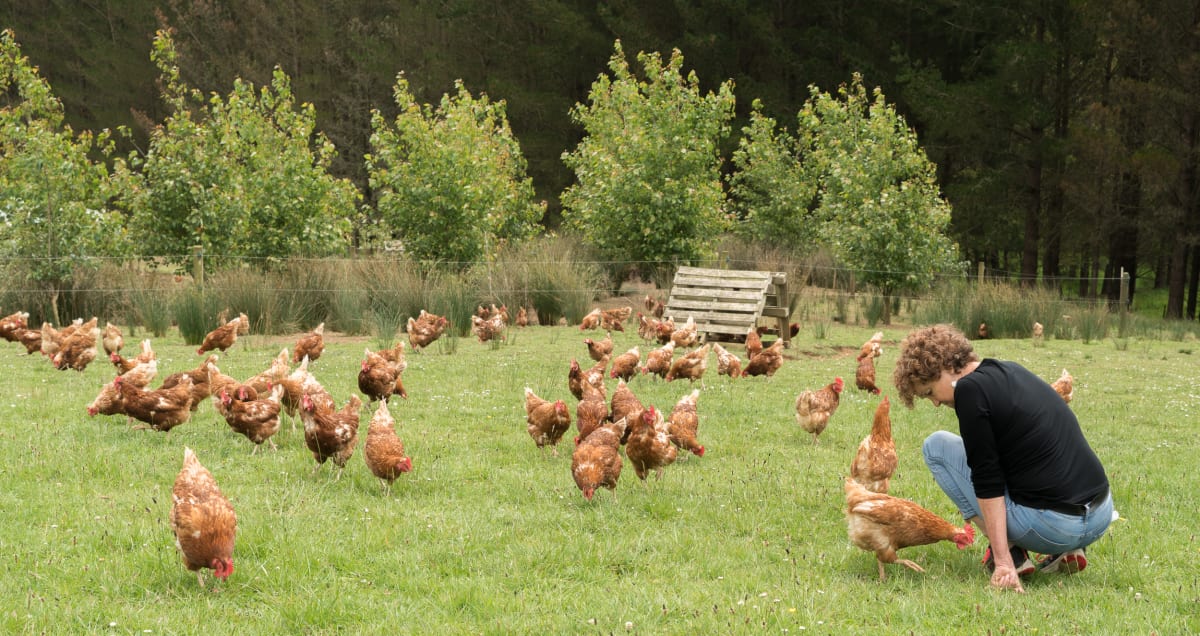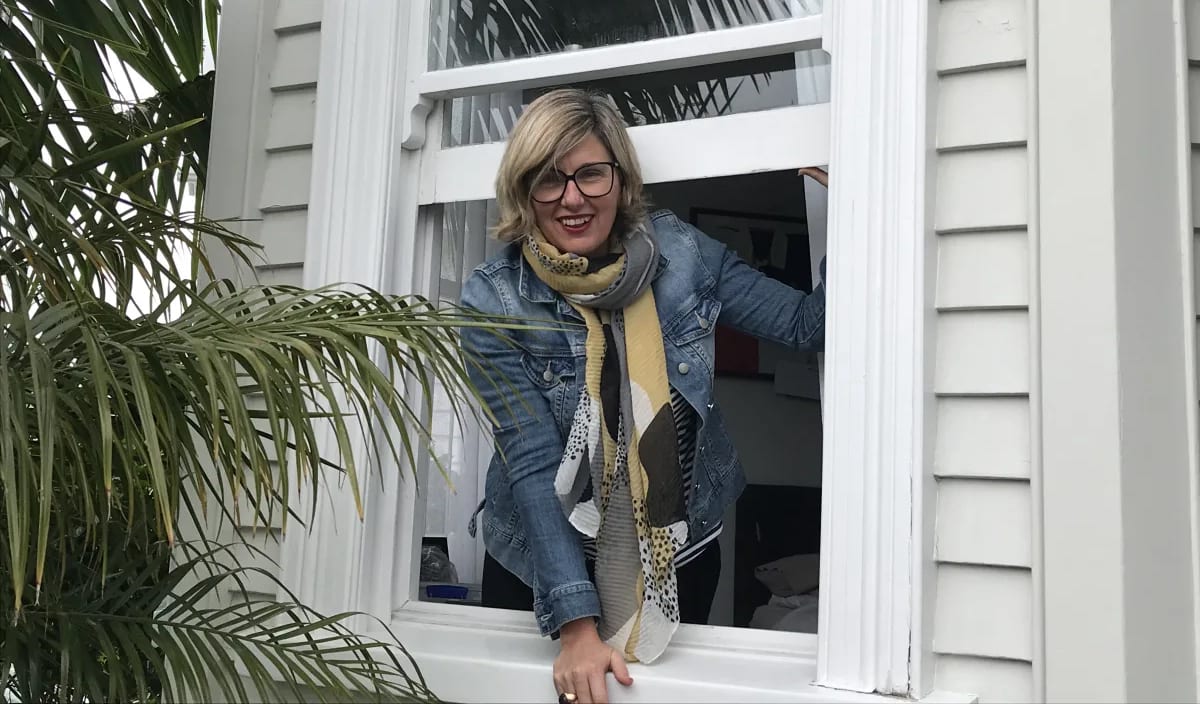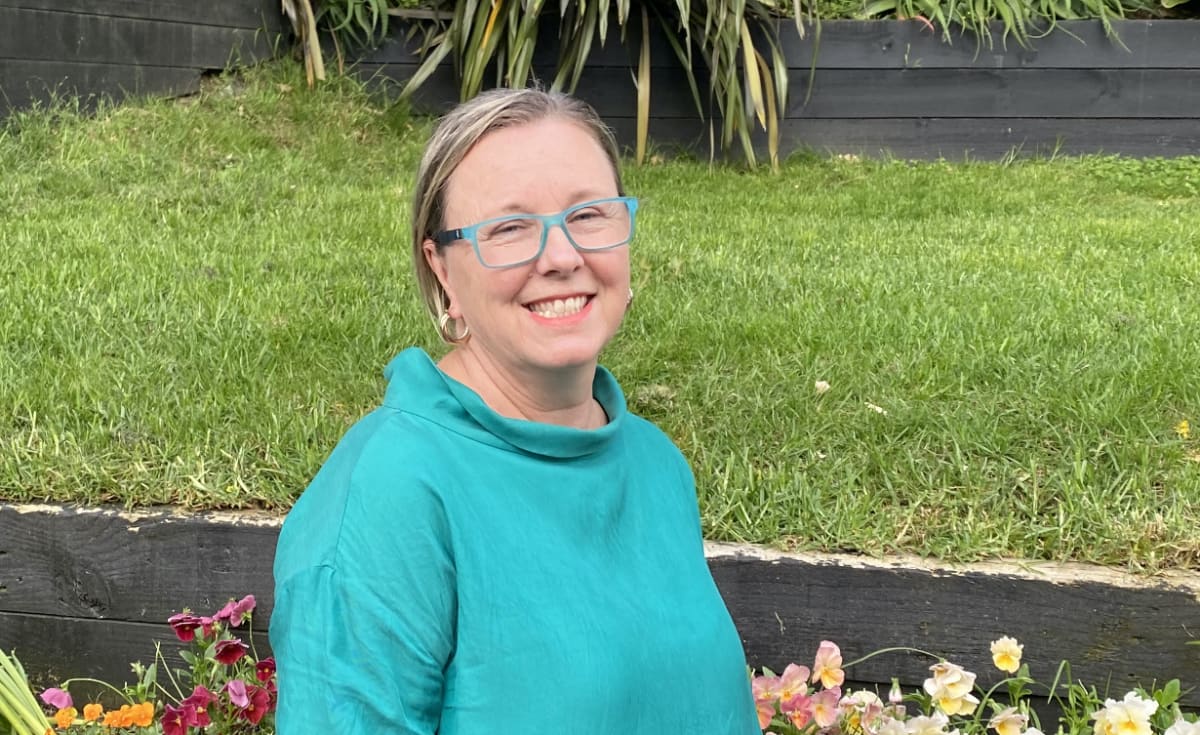
From executives down, workers are under pressure in the Omicron outbreak
Matthew Quested isn't a worrier. Pulling your hair out only makes you bald, he says. But even he recognises he has an awful lot on his plate at the moment.
Quested runs Whangaripo Valley, a free range egg farm north of Auckland. He has 22 staff, 60,000 chickens and 350,000 eggs to get to customers each week. A few days ago Covid took out his driver and his merchandiser - he and his wife spent much of the weekend taking eggs to the supermarket and stocking the shelves. Fifteen stores on Saturday, more on Sunday.
Quested is going to be working 11-hour days, seven days a week for a while longer yet, he says.
At the same time, demand for eggs is down. Many of the cafes Whangaripo supplies have been shut at least some days a week because staff are sick or isolating. Even the ones that are open have fewer customers - people just aren't going out. One cafe which normally takes six crates of 180 eggs each week, took just one last week.
And that baking bonanza which saw us buying up cake-making supplies during the Covid lockdowns, that's not happening now we're feeling bad and isolating at home.
But his chickens just carry on producing eggs.
"I’ve taken one flock out early - they will all have gone by the end of the week," Quested says. That's 8000 birds, and a hit to the bottom line, but it'll save on feed and staff to collect eggs and look after the chickens.
"There's no point producing eggs below cost."
Then there's the Russian war with Ukraine, which has pushed up the cost of the fuel to transport his eggs, and is almost guaranteed to increase the price of chicken feed - both countries are massive producers of grain. There could be shortages too - Quested is keeping his grain silos as full as he can in case deliveries can't get through.

"The reality of producing eggs is you are working on cents in terms of profit margin. If costs go up 2c an egg, it makes a difference."
Quested isn't stressed, exactly. It is what it is, he says, and Whangaripo will get through. But he knows plenty of people doing it tough in terms of their mental health, including some of his staff, for whom the uncertainty of each sniffle, each piece of news about a close contact, and the potential impact on themselves and their families of catching Omicron is super-stressful.
He'd like to be able to offer everyone rapid antigen tests every day, but he doesn't have enough; his order from a UK company that was meant to arrive more than a fortnight ago isn't here yet.
The stress is exacerbated for staff by the fact they have to self isolate around the farm as much as possible, keeping away from each other, Quested says. That normal chatty, relaxing, socialising aspect of work is gone.
Burn-out on the up
If it's bad for his team, Quested can't imagine what it's like for office workers isolating at home every day.
Shannon Barlow, managing director at Frog Recruitment, has a pretty good idea. She says increasing numbers of people are reporting feeling stressed and run down.
Last week, the agency carried out a survey of more than 600 workers, asking them whether they felt more burnt out than they did 12 months ago. Of those respondents, 65 percent answered yes, compared to 20 percent who felt about the same and 15 percent who said no.

And the stress is cumulative. Another Frog poll conducted in June 2020 found 64 percent felt more burnt out, while 36 percent did not.
“Although people took the chance to take a decent break over the summer, it already feels like that was a long time ago,” she says.
In addition to staff being off sick or isolating due to Covid, the skills shortage meant some workers were already putting in longer hours, and juggling more work with fewer staff.
The pressures of work aside, Barlow is finding workers split into two camps when it comes to their reaction to the Omicron outbreak.
“The guilt and upset that senior leaders feel is quite significant, when you’re in a visible role and you’ve got the media and shareholders coming at you. I don’t think there’s enough concern for those people making those decisions." – Jo Nicol, Hiakai Co-Labs
Some wanted to get on with their life, feeling they had mitigated the risk to themselves and others by getting vaccinated and following safety protocols. Others were more risk averse, and chose to take more measures to protect themselves.
Barlow said this type of “self-imposed lockdown” was evident in people choosing to work from home when they could go into the office.
For example, the number of staff at a big engineering firm she knows of who chose to come into the office dropped by about 80 percent when the shift to the red light setting was made.

And it isn't just office workers struggling. It's also the executives on the six-figure salaries finding things tough, according to Jo Nicol, an organisational change consultant and director of Hiakai co-labs.
She says leaders in a range of sectors, from supermarkets to public transport, are feeling the heat when services aren't delivered or the shelves are empty due to staff absenteeism.
“The leaders are saying, ‘don’t come to work sick’, because they’re caring and compassionate, but then they’re getting slammed because they can’t provide the services,” she says.
“The guilt and upset that senior leaders feel is quite significant, when you’re in a visible role and you’ve got the media and shareholders coming at you. I don’t think there’s enough concern for those people making those decisions.
Workforces wiped out
Alan McDonald, head of advocacy and strategy at the Employers and Manufacturers Association, says Omicron has ripped through the ranks at some factories.
“One of our manufacturers had 10 key staff off at the same time… The whole place had to shut down and 80 people couldn’t work because of those staff being absent,” he said. “It is wiping out large parts of the workforce.”
Other businesses were already feeling the cumulative effect of dipping in and out of lockdowns, before the Omicron outbreak slowed things down to the point of being a “pseudo-lockdown”. There's also a degree of uncertainty on how this outbreak would play out in length and severity, compared to previous Government-enforced lockdowns.

“This one is a little different, because we keep talking about what we’ve got to do to get through the peak, but no one is quite sure what that looks like,” he says
Last year, the Government poured $10 million into work-related mental health support for Auckland businesses after the city bore the brunt of successive lockdowns.
The Employers and Manufacturers Association, alongside the Auckland Business Chamber, the Government and Auckland Council, has developed First Steps, a website providing support for businesses feeling the mental and financial crunch of Covid-19.
Since the website was launched in December last year, about 22,000 people have visited, and 650 people have made use of a self-assessment tool.
A programme to help employers bolster workplace wellbeing was in the works, covering issues such as stress management, handling fatigue, sleep education, and building resilience.
Getting back to basics and taking care of yourself in the midst of uncertainty is among the best things anyone, including business owners, can do in this time, experts say.

Amanda Maoate, a registered psychotherapist and performance coach with consultancy Humansoftware, is observing differing levels of trepidation in the midst of the outbreak.
Signs of normality, such as the border opening, provided a glimmer of hope to some people. Others were still bogged down by the length of the pandemic, or being ill or stuck in isolation.
“People are really having to dig deep in terms of perseverance. That’s easier for some than others."
In uncertain and stressful times, she says people need to draw on healthy coping mechanisms they might have developed earlier in the pandemic. A solid routine, for instance, is a good place to start.
"It's all about creating certainty within your own little backyard," Maoate says.







